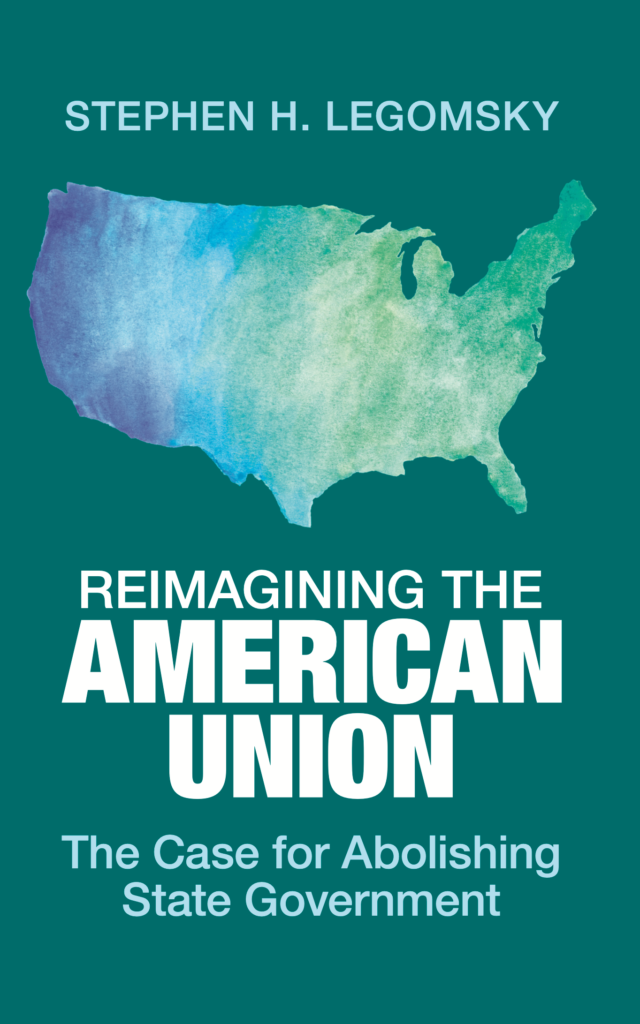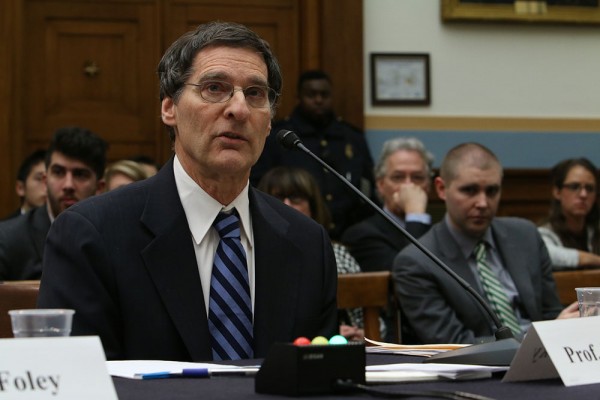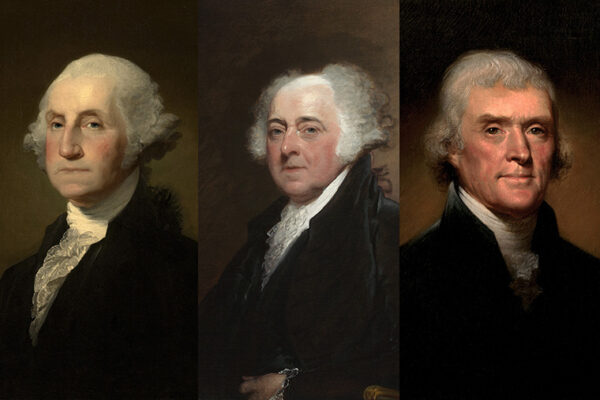What would America look like if there were no state governments? Stephen Legomsky, the John S. Lehmann University Professor Emeritus in the School of Law at Washington University in St. Louis, tackles that question in his new book, “Reimagining the American Union: The Case for Abolishing State Government,” published by Cambridge University Press.
Written as a thought experiment, the book advocates for the abolition of state government in the United States. Its main argument is that state government has been the greatest single source of the many current threats to American democracy.
Here, Legomsky discusses some of the ideas raised in the book.
The idea of eliminating the states will be jarring to most Americans. How did the idea for this thought experiment come about?
Like many other Americans, I tend to whine and mope about the endless assaults on our democracy. So one day, in 2023, I found myself compiling what ended up becoming a long mental list of my grievances. My list included the Electoral College, the awarding of two U.S. senators to large states and small states alike, the process for appointing federal judges, the constitutional amendment process, gerrymandering, ever more ruthless voter suppression laws, and so on.
All these things seemed to me anathema to any credible definition of democracy. And it suddenly struck me that none of these things could occur without the states — with a few necessary adjustments that I propose. That, in turn, got me wondering whether we really need three levels of government — national, state and local — or whether we would be better off with just two — national and local.

What would eliminating the state governments accomplish?
Right now, the amount of say you get in national elections depends on where in the U.S. you live. A handful of voters in swing states decide the presidency. In the Senate, a resident of Wyoming gets roughly 69 times as much per capita representation as a resident of California. A handful of small states can thwart a constitutional amendment that has been ratified by states that represent the overwhelming majority of the population — as happened with the Equal Rights Amendment. State legislatures pass audacious gerrymandering schemes as well as voter suppression laws that are specifically designed to make it as hard as possible for African American and Hispanic U.S. citizens to register or to vote. Take away the states, I argue in the book, and all these problems practically disappear.
But it’s not just that. Democracy aside, I try to show that having three levels of government all taxing us and all regulating us, funding 50 state legislatures and 50 state bureaucracies, and subjecting everyone to a dizzying array of 50 different sets of laws, are also a waste of taxpayer money and a pointless burden on the citizenry. Better, in my view, would be to reassign certain of the current state functions to the national government and the rest to the local governments, which are both more accessible and more politically attuned to the people they represent.
Why are states the biggest threat to democracy and not the federal government?
Fair question. The book was written in 2023 and updated through October 2024, but published in January of this year. Given the intervening 2024 election results, I must admit my timing couldn’t have been worse. Today, the federal government poses the far greater threat to our democracy, so there are many who rightly look to the states — or more accurately, some of the states — for a partial antidote.
But I would make two points. Without all the counter-majoritarian distortions that the states build into our federal election system, the chances of a radical authoritarian political party achieving a national trifecta — meaning control of the White House and both houses of Congress — would be dramatically diminished in the first place. I’d rather avoid the problem entirely than just nibble away at a few specific excesses after the fact. And second, in the system I’m proposing, the tens of thousands of local governments would be at least as well positioned as a handful of states now are to push back against central government overreach.
We certainly don’t appear to be on a path to eliminating states. So how can your book benefit our society as it stands?
I can’t disagree; the states aren’t going away anytime soon. Their immediate future is secure. But history teaches us that the more distant future is full of surprises. Today’s fantasies have a way of becoming tomorrow’s realities. Those new realities don’t materialize out of thin air, though. Gradual changes in public opinion are almost always a precondition for other fundamental changes. So I’m taking a long-term view, just planting an idea to lay the groundwork for an evolution in the public’s attitudes toward state government.
Beyond that, I’m trying to blunt the rhetorical impact of “states’ rights” as a political slogan. Too often, these words have been nothing but code for the denial of individual rights — a perversion of the fundamental democratic principle that it’s the job of the state to serve the people, not vice versa. The Civil War is just the most famous example; there are many others. I also hope that greater skepticism about the value of state government will lead to more serious public scrutiny of the actions of state legislators and governors.
And of course, as an academic, I would love to broaden the current debate over the threats to our democracy by pointing to state government as the common source of most of those dangers. I’d also like to broaden the federalism debates by arguing that it’s not just a matter of adjusting the current boundaries between federal and state authority. This is the first book to argue that the best remedy would be to get rid of state government entirely.


